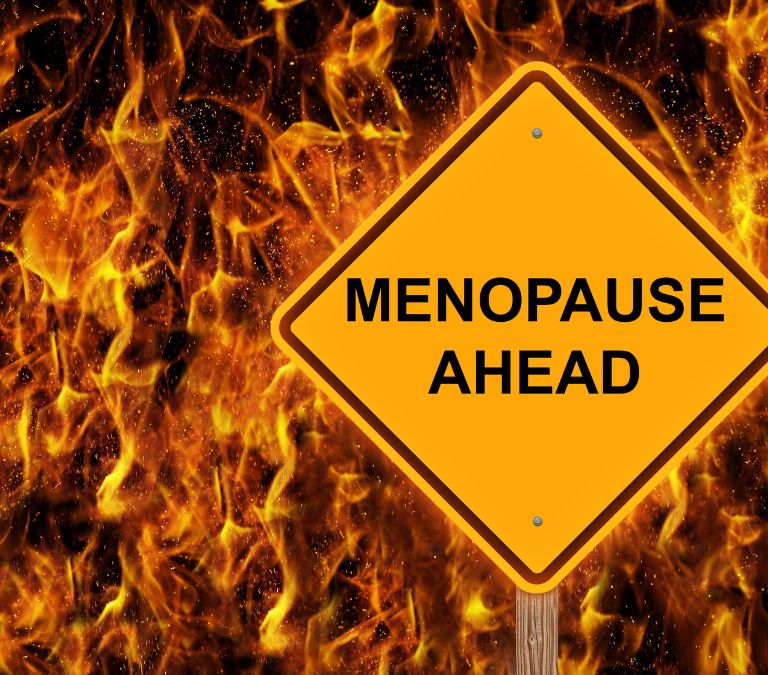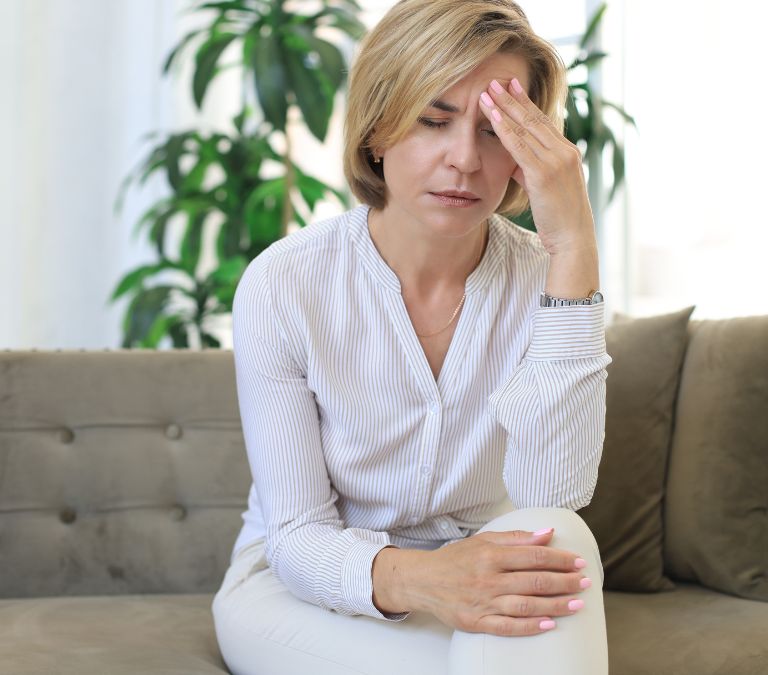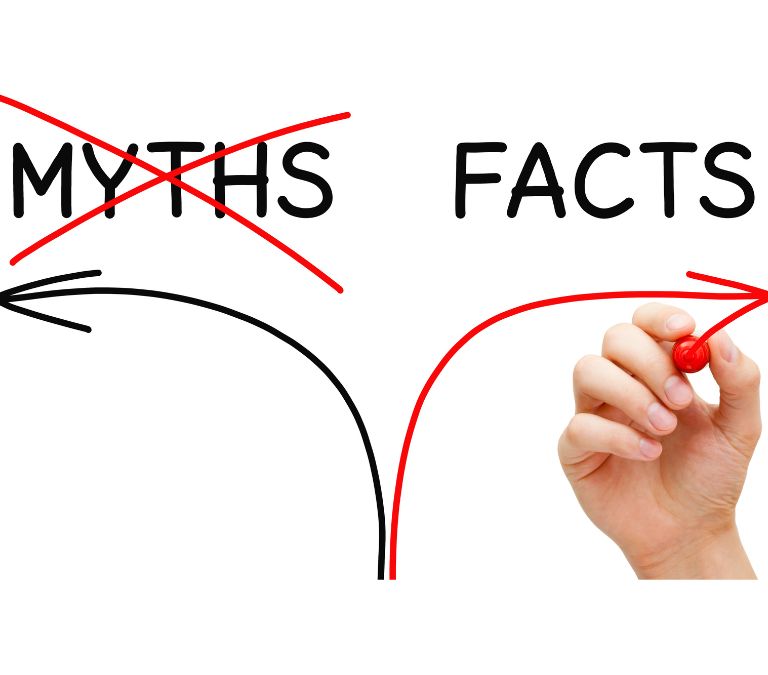Like any other phenomenon, menopause is often linked to misconceptions and fictitious beliefs that tend to exaggerate what it entails. In modern society, menopause myths have spread so much that many women today do not even understand how menopause works anymore. They believe and practice what should not be practiced, which can negatively affect their health.
Some years ago, a very close friend of mine began to experience some symptoms associated with menopause. During this period, she was convinced she won’t have any sexual drive anymore; she was starting to prepare for life without sexual pleasure. It is a prevalent myth spreading like wildfire right from time immemorial. Women going through the menopause phase of life can still enjoy sex even better than they did before getting to menopause.
Before we go further, let’s briefly revisit “menopause.”
What Is Menopause?

Menopause is the time of our lives when we become unable to bear children due to the gradual and eventual decline in the ability of our ovaries to release eggs. Let’s put it this way; menopause is the time of every woman’s life when she becomes unable to bear children. It is essential to know that menopause is typical in a woman’s life and typically begins after age 40.
Stages of Menopause
There are three distinct stages of menopause; perimenopause, menopause, and post-menopause. All of these stages have different reactions to caffeine.
Perimenopause: This is the time that leads to menopause. At this point, the hormones begin to decline, and the menstrual cycle becomes unpredictable. Some mild effects of menopause, like hot flashes, can be experienced.
Menopause: Immediately, the body stops producing sexual hormones, and your menstrual period has gone up to 12 months without showing. You have gotten to the stage of menopause. Immediately entering this stage, you go straight to the postmenopause phase. This phase is very brief.
Postmenopause: This is the time immediately after menopause. Getting to this phase means remaining there for the rest of your life; your hormonal level stays low, and your monthly period disappears. Your ovaries lose the ability to release eggs, making it practically impossible to get pregnant. At this point, menopausal vasomotor symptoms may begin to appear.
Common Menopause Myths
It will be interesting to know that 70% of the presumed facts you thought were true about menopause are only misconceptions made to induce fear and complicate the concept of menopause. We will be analyzing these menopause myths together and then getting the actual truth.
Before we begin, I would like to make it known that many women are easily convinced to believe anything without further research. Sometimes ago, I almost became a victim of naivety. There was a time someone told me to drink my urine to prevent the effect of vasomotor symptoms on me. At that time, I was going through every difficult thing menopause had to offer, so I was quickly moved to believe the nonsense. Thank goodness I reconsidered. Who knows what could have resulted from that ignorant act?
Without further ado, let’s get to it. Some popular menopause myths include:
- Menopause begins immediately at age 50
It would have been very nice if life itself was that predictable. Unfortunately for us all, menopause would not schedule an appointment with you before coming. There are estimated times for everything we go through; labor, menstruation, menopause, and childbirth. However, the actual time for any of these is not known. On average, menopause begins at about 52, but symptoms could start showing as early as your late 30s to as late as your early 60s. Just as every woman is different, the time at which menopause shows can vary from one woman to another.
- Menopause happens overnight
It is normal to go through the perimenopause stage before getting to menopause. Sometimes, this stage can last several years. Menopause doesn’t happen overnight. It takes a process.
- Menopause starts when the periods stop
As stated earlier, menopause is separated into three stages; perimenopause, menopause, and postmenopause. Perimenopause is the time that leads to menopause; at this stage, the body begins to show signs of menopause. Before menopause begins, your period has to stop for 12 months consecutively. It means you are not technically in menopause until these 12 consecutive months of no period are attained. Before I got to menopause, I had irregular periods for up to a year, and it took me even double that to get to menopause finally.
- After getting to menopause, your sex life is automatically over
Of course, this is not true. You are in menopause doesn’t mean you can no longer enjoy sex. Yes, menopause comes with decreasing levels of the female hormone estrogen, which can cause vaginal dryness and lower sex drive. Indeed, sex won’t feel the same way it did when you were in your 20s, but it is not true that you lose interest in sexual activities. You can opt for lubricants for vaginal dryness, hormone therapy, and lifestyle changes to keep your sex life alive if you feel very declining levels of sexual urge.
- Menopause makes you gain weight
The declining levels of estrogen could indeed make you more susceptible to earning some extra pounds. However, weight gain is not assured after menopause. Weight gain during menopause is attributed more to a decrease in the rate of the body’s metabolism as you age. Also, if you eat as much as you’ve always done without engaging in any exercise, you will most likely add some extra pounds to your weight. As a remedy, you should eat less and work out more to prevent weight gain.
- Menopause makes you forgetful
This belief is something that women easily accept. So many women today believe that with menopause, you become less intelligent and that you do not have to engage in mentally draining activities anymore. It is false and shouldn’t be accepted. The transition from perimenopause into menopause can sometimes be associated with fogginess. It does not mean that menopause is bound to put you in a case of memory loss. Menopause does not cause memory loss, so if you have trouble remembering some things or experience any form of problems regarding your memory, it is more likely to result in brain aging.
- It makes you very irritable
While some symptoms like hot flashes and night sweats could result from menopause, it is good to know that menopause will not make you irritable. Sometimes, menopause will alter your sleeping pattern and make you moodier during the day. It is, however, not influenced solely by the transition into menopause.
- Women going through menopause have to take hormones
Hormone Replacement Therapy can deal with symptoms associated with menopause, most especially vasomotor symptoms. However, HRT is not the first treatment choice for many women going through menopause. While HRT can have its benefits, it also has risks that could be very severe. That all women going through menopause have to take hormones is factual.
The best way to ease the effects of menopausal symptoms is to practice lifestyle changes and healthy living. These methods have been proven to be helpful for a vast number of women today. I’d instead engage in lifestyle changes than taking medications. Right from the period I entered into the menopause phase, I have permanently opted for healthy living, exercises, and relaxation techniques to ease vasomotor symptoms, and these methods have been helpful.
- You will get to menopause at the same time your mother did
You can inherit so many traits from your parents, and these genes can play critical roles in your general living. What is not true is that you will get to menopause at the same period as your mother did. You can get to menopause way earlier than your mother, just like me, or you can get to menopause way later than your mother, like my cousin Piper.
Knowing that some factors can influence how early you get to menopause is essential. For example, smokers tend to get to menopause two years earlier than women who do not smoke. Also, chemotherapy and autoimmune diseases can make you get to menopause earlier.
- You cannot get pregnant during perimenopause
Your fertility does not disappear the moment your periods become irregular. Indeed, you can no longer get pregnant when you get to menopause. Your periods become irregular during menopause doesn’t mean it becomes non-existent. Even with the irregular periods during perimenopause, you can still get pregnant if you do not use birth control. My mother once told me that she gave birth to my youngest brother during the period she thought she was in menopause already.
The truth is that she was going through perimenopause, and she mistook it for menopause itself. While perimenopause kick-starts the journey to menopause, it does not mark the start of infertility. Until your periods have stopped for 12 consecutive months, you have not gotten to menopause yet. Using birth control is often recommended by doctors to women going through perimenopause.
- Menopause only comes naturally
While menopause often occurs naturally, it does not mean it cannot be triggered by other unnatural factors like medical conditions, surgeries, and medications. Some surgical or medical procedures can lead to menopause. The point where the ovaries become incapable of releasing eggs marks the start of menopause regardless of its cause. Sometimes, the cause of sudden infertility is not even known.
In the United States, up to 5% of women enter menopause from unnatural causes. Many couples in the United States undergo surgical procedures, so they can permanently become infertile. This procedure is standard in women who do not rely on birth control to prevent pregnancies.
- Men go into menopause too
You wish! Only women go through menopause. Sometimes, men can experience significant drops in the level of testosterone in them as they age, but it is in no way like menopause, where there is a total decline in the reproductive function of the reproductive organs. Even with these changes in the testosterone levels in men, it is not fair that they show no symptoms associated with menopause. It isn’t fair.
- The only symptoms associated with menopause are hot flashes
This assumption is a lie. Women going through menopause can experience numerous symptoms. While hot flashes and night sweats are the most common menopausal symptoms, some symptoms are also experienced. These symptoms include aches and pains, difficulty sleeping, headaches, reduced sex drives, vaginal dryness, and itching sensations under the skin.
- Menopause has no benefits
How can we not see the benefits of menopause? So many women going through menopause forget that they no longer need those contraceptive pills and sanitary pads. Women in menopause do not have to worry about pregnancy prevention anymore, and they become free from the stress that comes with the age of reproduction. Well, thank goodness I’ve reminded you about those essential benefits.
- Menopause must be treated
We often forget that menopause is NOT AN ILLNESS. Menopause is a natural change that all women must go through. Menopause is completely normal, and any treatment is only made to relieve the symptoms that come with it. Many women do not even need treatment and still go for treatment. Taking medicine even when your body does not need it can sometimes worsen symptoms. You should always consult a doctor before engaging in any therapy during menopause.
- You have no choice but to suffer the symptoms
The truth about menopausal symptoms is that they can be prevented or treated. So many avenues are available for cushioning the effects of symptoms. As women, we do not have to go through the symptoms simply because there are no treatment options. If you are going through menopause and you experience signs that you would like to go away, making lifestyle and dietary changes, taking herbal supplements, and taking Hormone Replacement Therapy can be very useful. To find what is best for you, try visiting a doctor.
- Menopause only lasts a few years
What? Not! Some women are told that menopause will be over in a few years in a bid to encourage them. I wouldn’t want to be the one to say it to you, but here it is; once a woman gets to menopause, she is bound to be in that phase for as long as she lives. Perimenopause shouldn’t be mistaken for postmenopause. Some women going through perimenopause can mistake it for actual menopause. Some women think the irregular periods with perimenopause can also be attributed to menopause. Well, immediately after you get to menopause, you will never have periods again. In a nutshell, menopause is permanent. Note that the severity of the symptoms can come and go. Menopause does not come and go. It comes and stays.
- The symptoms of menopause are always severe and never end
While menopause can be complex and challenging to go through, the severity of the symptoms fluctuates and doesn’t stay the same for a long time. Sometimes, I forget I’m in menopause; other times, I am fully aware.
- Menopause changes who you are
Menopause does not change who you are. You are still a woman, and you are still you. The fact that your ovaries can no longer produce eggs doesn’t make you less of who you are. You are as yourself as you could ever be. There is no difference. You are still worthwhile.
- Only women need testosterone
Testosterone is regarded as a male sex hormone. However, it is essential for the sexual health of women. A slight increase in testosterone in a woman’s body can tamper with regular ovulation. For women in the menopausal stage of their lives, testosterone levels go through a subtle decline, and this tends to affect their sexual mojo.
- You can quickly tell when you are in menopause
Since perimenopause lasts several years, many women do not even know the period they finally get to menopause. Knowing when they get to menopause can be extra tricky for women who have had a hysterectomy because their uterus has been removed, but their ovaries are still present. Sometimes, testing is required to know if a woman has undergone menopause.
- Sleeping problems cannot be linked to menopause
Sometimes, women are very doubtful that the cause of their sleeping issues is a result of menopause. The truth is that sleep problems can be caused by menopause. According to research, most women between the perimenopause and postmenopause stages of their lives reported the most sleeping problems.
- Every woman must show severe symptoms of menopause
This postulation is not true. Most women in the United States will go through menopause without showing a single severe sign. The majority of women going through menopause live delighted lives, free from any form of complications. Note that women who take good care of themselves and engage in exercise are most likely to have an easier time going through menopause. However, some women also go through menopause with some very severe symptoms and will have to opt for HRT or other medications.
- If you started having your periods earlier, you would get to menopause earlier
Nope! This assumption isn’t the case at all. I don’t see any need to add any further explanation to this but note that how fast you get to menopause will result in the number of eggs you are born with. If you have fewer eggs, you’ll have an earlier menopause, and if you have fewer eggs, you will have a later menopause. However, the intermediate stage of menopause starts at about 52.
Separating the truths from the myths

The internet is filled with a lot of things. People say a lot of things. We see a lot of things. Sometimes, we are moved by something we perceive, and we become ready to accept them as the absolute truth. Even with all these, we are in an age where checking for facts has been easier. While some myths are easily overlooked, myths relating to our health shouldn’t, menopause myths should certainly not be overlooked. With this, it is essential to do our research and consult a doctor for cases of uncertainty.
Menopause is not and shouldn’t be a one-size-fits-all situation. Every woman has a different experience with it. Everyone now claims to be doctors, which has produced sickening myths regarding our reproductive health. As stated in the first paragraph, many women do not even know what to believe anymore.
As women, we must be enlightened and empowered, so we are not left in the dark. Ask questions, do research, and do not be in haste to get solutions. To avoid falling for some myths regarding my health especially menopause myths, I have made my doctor my best friend. With this, no one can fool me into believing what has not been confirmed to be true.







